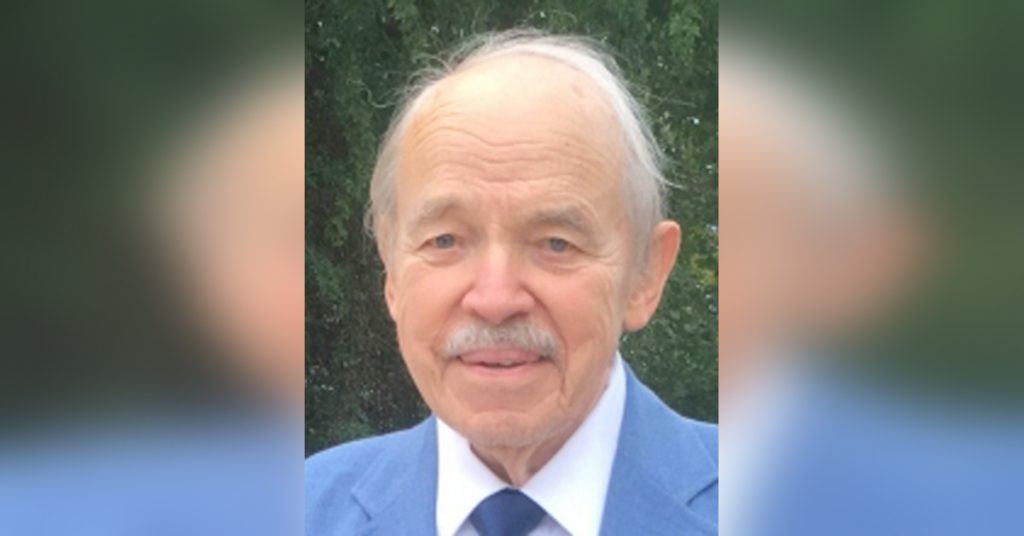- Date Of Birth: August 8, 1932
- Date Of Death: January 28, 2022
- State: Massachusetts
John Bimshas, 89, of Plymouth, passed away peacefully on January 28, 2022. Born in Šiauliai, Lithuania, he was predeceased by his parents, Jonis and Anna Bimszas, his daughter, Kathi Bimshas, and his sister, Gertrude Galminas of Winnipeg, Canada. He graduated from Hyde Park High School and Northeastern University. He served as an officer in the U.S. Army Corp of Engineers and joined the Instrumentation Laboratory of MIT (renamed Draper Lab) in 1959. His entire career was devoted to defense work for his adopted country. The lab was involved in classified research and development for the U.S. Navy, designing and building inertial guidance systems for the Navy submarine-launched ballistic missiles. He began as a mechanical design engineer, progressed to the leader of the Mechanical Systems Division, and eventually became Director of Navy Strategic Programs. He was responsible for the complete mechanical optical and thermal design, conceptualization, documentation, and construction of the POLARIS, POSEIDON, and TRIDENT Guidance Systems. He was proud of his participation in developing and ensuring the continued viability of the world’s primary deterrent against Soviet aggression and keeping this country safe. John was a WWII refugee who arrived in the United States in 1949 after his idyllic country of Lithuania became savaged by both Soviet Communists and Nazi Fascists. In 1940 he experienced the propaganda of Soviet Communism firsthand, and his family felt the effects of the Bolshevik occupation as the communist government seized a room in his home and quartered Red Army officers there. In the summer of 1941, Hitler’s Barbarossa campaign commenced, destroying much of his childhood neighborhood and killing close neighbors. His spared family home offered shelter for the distraught despite the failed attempt by Nazi SS troopers to separate the men from the women and children. He lived under German occupation for about 3 1/2 years and witnessed the hardships, horrors, and atrocities associated with that brutal war. In 1944 his father decided that they would not be overrun by the advancing Soviets again, so they fled to the west, leaving Lithuania and skirting the boundaries of Germany and Czechoslovakia before reaching an alien refugee camp on the west side of Selb. (Years later the family learned they had come within one day of being deported to Siberia.) In 1945 they were freed by the Americans and then shuttled between various Displaced Persons camps in the American zone of Germany, where he learned to speak English. In 1949, through the Displaced Persons Act, his family came to America, sponsored by Marion Hardy who owned a farm in Bennington, Vermont. John was married to the late Martha (Ellard) Bimshas from1955 to1977. They had four children: the late Kathleen (Kathi) A. Bimshas of Needham; John (Jack) R. Bimshas (Kim), of Stow, Ohio; James (Jim) E. Bimshas (Judie) of Dover, New Hampshire; and Karl D. Bimshas of San Diego, California. In 1980 he married Dorothea Pappas and they enjoyed retirement in Orleans on Cape Cod until she died in 2011. He married Joan Harrison in 2013 and between their honeymoon in Hawaii and a later cruise in Alaska, he came close to completing his goal of visiting every state in the union. He loved his grandchildren: Jessica, James, John, Andrew, Sarah, Katiana, and Jonas. His expansive heart welcomed Joan’s granddaughters, Charlotte, Trixie, and Ashley into the fold. Every great-grandchild who arrived on the scene increased his happiness. He was the beloved Uncle John to Kristina and Brenda in Canada. He enjoyed taking guests, especially children, out on his boat where he answered to “Captain John”. Countless treasured friends and passing acquaintances were instantly buoyed by his smile and great personal charm. Not infrequently referred to as one of the world’s finest men, his wit, wisdom, leadership, curiosity, inventiveness, and patriotism served as an inspiration to those who met him. He was a kind, sociable, caring, and generous man, quick to offer aid and comfort to those in distress. He loved being surrounded by family and friends to celebrate their accomplishments and to show off the latest contraption he fashioned for feeding birds or frustrating the squirrels (the only foes he could not defeat.) In his book, Escaping War; Our Journey to Freedom, John wrote in part, “My father was our hero. Because he didn’t talk much about those days, I don’t know how he managed to make all the good decisions that got us to safety. What I do know is that he has been my model for what a father should be.” This sentiment applies equally to him, echoed and heralded by his three surviving sons.
Source link
